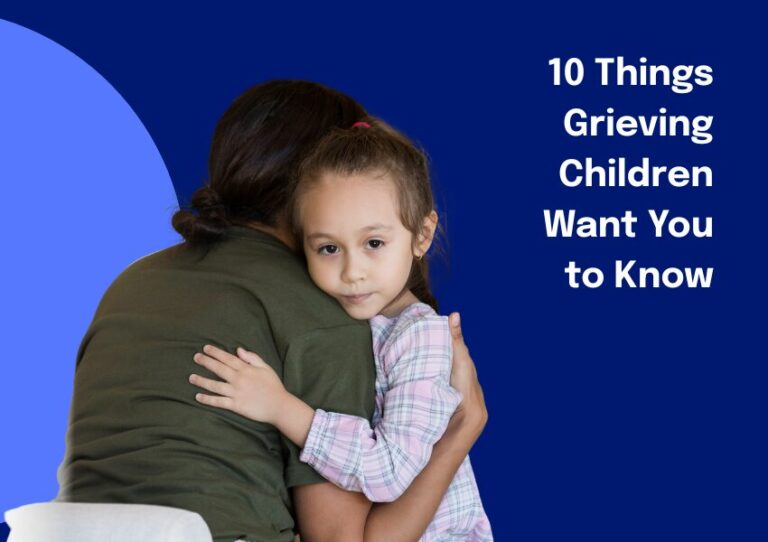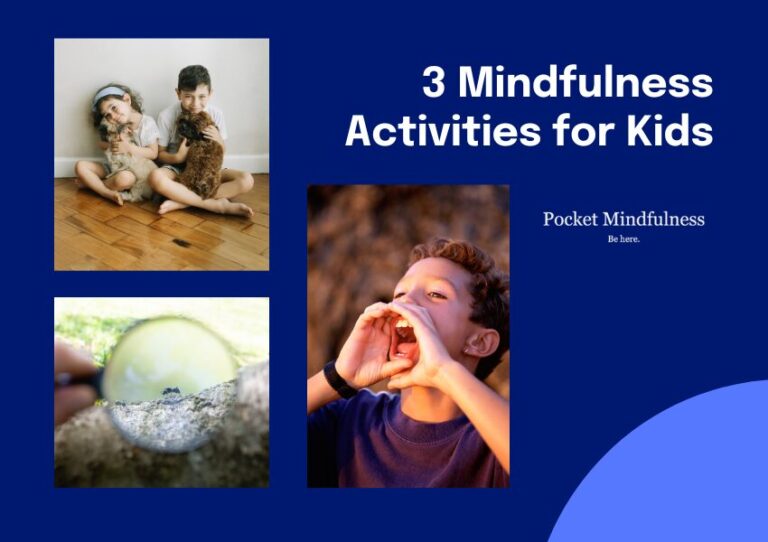Grief by Age: Preschool Children (Age 3-5)

Developmental Stage: During this preschool age, children develop social/emotional/moral reasoning, engage in imaginative and fantasy play, understand cause and effect, can experience two emotions at once, begin to self-sooth, and experience feelings of shame and guilt.
Concept of Life & Death: Young children will transition from believing all objects are alive to seeing anything that moves as alive. This age group does not understand permanence of death: they may believe the person in asleep and will wake up.
Symptoms of Grief: All children, regardless of their experience with grief, may exhibit the following traits at various ages and stages of their life. However, research has found that after the death of loved one, children may have prolonged or noticeable experiences with one or more of the following symptoms:
- Behavioral:
- clingy
- stubborn
- impulsive
- temper tantrums
- risky behaviors
- regression (bed wetting/thumb sucking)
- talking less
- Emotional:
- fear of separation
- extreme sadness/depression
- unable to be soothed/comforted
- difficulty with change
- Physical:
- frequent headaches or stomachaches
- more colds than usual
- Cognitive:
- magical thinking (that the deceased will return)
- constant questioning
- child may believe they caused the death and toxic shame or excessive guilt may develop
How to Help – the 6 Rs:
Reassure:
- Remind the child that they are safe and loved.
- When implementing consequences, have child in sight during time-outs (1 min per year of child’s age) and use a repair phase afterwards like: “you and I are okay now”.
- Identify special ways that the deceased person would soothe the child and incorporate these into daily routines (cooking a comfort food, singing a specific lullaby, comforting child with a special blanket).
- Be available for their emotional needs and acknowledge feelings “I see that you are…upset/angry/frustrated”.
- Model appropriate ways to express grief.
- Provide choices when possible “would you like to wear the green or red shirt today”.
Routine:
- Try to stick to a consistent schedule for sleeping, eating, and childcare.
- Offer healthy comfort foods when child is having a hard day.
- If you are one of the primary caregivers, avoid being away for several days at a time.
Release:
- Make time for creative and physical outlets through playing, art, dancing, movement, and music.
- Read age-appropriate books about grief.
Remember:
- Include child in memorializing/funeral activities.
- Create a legacy book or box to store mementos and special items.
Reflect & Connect:
- Tell the child that they will be taken care of and loved.
- Prepare by reading 10 Things Grieving Children Want You To Know or Seven Suggestions for Explaining Death to Children.
- When explaining the death, using simple and short sentences. Use the words dead and died. Avoid euphemisms such as “gone”, “passed on”, “lost”. Here are some sample scripts to consider:
“Daddy’s heart stopped working.”
“Your mom had an accident and died from her injuries.”
“Grandma died today, and we will not be seeing her again.”
“Grandpa died today and won’t be coming home from the hospital.”
Reach out:
- Visit the National Program Guide (NPG) to find counseling and support groups in your area.
- Proactively intervene and respond promptly to signs of depression or abnormal behaviors: National Suicide Prevention Lifeline or 988.
- For additional resources, visit our Resource Library or contact us directly for personalized support specific to your area and needs.


